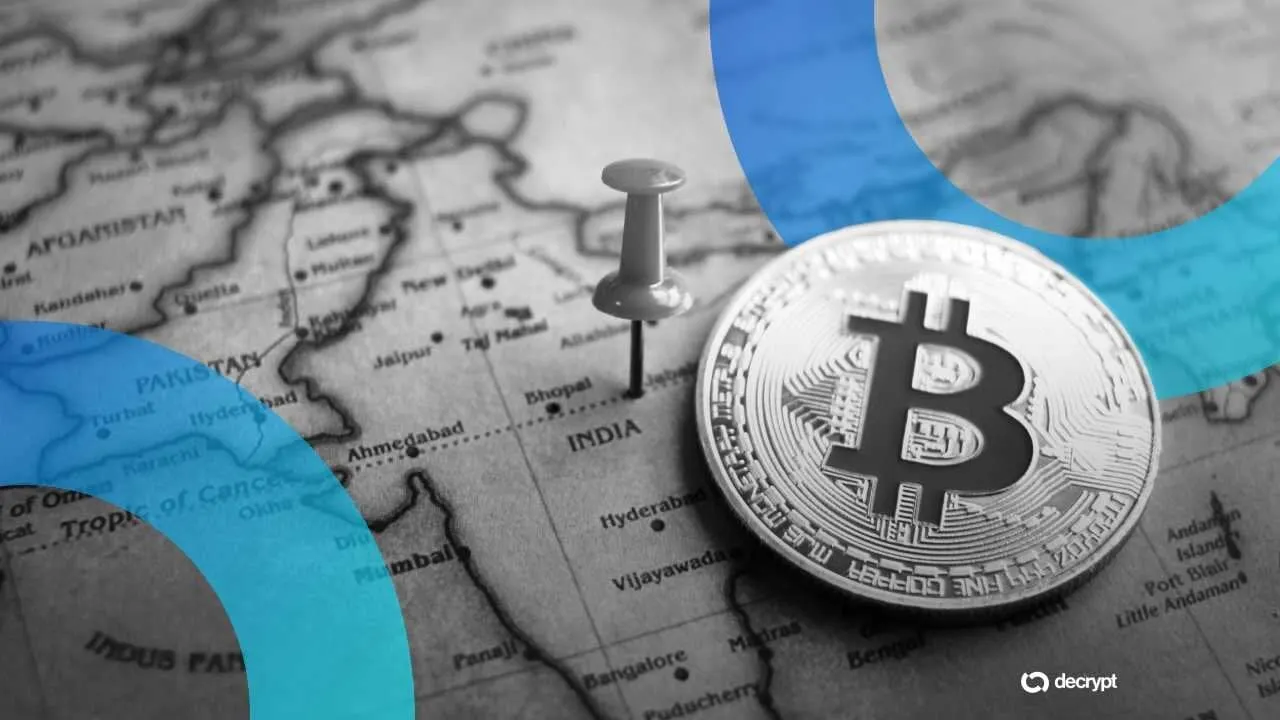In brief
- India’s CBDT Chairman Ravi Agrawal said the country is stepping up its use of AI and international data-sharing to identify crypto tax evaders.
- Minister of State Pankaj Chaudhary confirmed the department is using data analytics to match crypto TDS filings with income tax returns and issue automated notices.
- India is actively participating in the OECD’s Crypto-Asset Reporting Framework (CARF), aiming to enable automatic sharing of crypto tax data across borders to track offshore holdings.
India's tax authorities are deploying artificial intelligence and international data-sharing agreements to crack down on crypto tax evasion, with officials warning that digital asset transactions can no longer hide in the shadows of global finance.
The Central Board of Direct Taxes (CBDT) is strengthening its pursuit of crypto tax evaders through enhanced data analytics and cross-border information exchange, Chairman Ravi Agrawal revealed in an interview with the Economic Times.
The department now has access to over 6.5 billion domestic digital transactions and is actively participating in the Crypto-Asset Reporting Framework (CARF) to ensure automatic sharing of tax-related information on crypto assets between countries, according to Agrawal.
CARF is a global standard by the Organisation for Economic Co-operation and Development (OECD) that mandates crypto platforms collect and share user transaction data with tax authorities, enabling automatic cross-border exchange to combat tax evasion.
“The goal is to place crypto transactions under international tax agreements so there is alignment among the nations," Saravanan Pandian, CEO and founder of KoinBX, told Decrypt.
“It may be too early to comment on how this move may impact crypto exchanges,” Pandian said, adding that the exchange will “wait and watch what measures the government brings in.”
India's Income Tax Department is using artificial intelligence to match tax deducted at source (TDS) data submitted by crypto exchanges with income tax returns (ITRs) filed by individuals, and issue notices when discrepancies exceed $1,200 (₹1 lakh).
Digital access powers are "strictly applicable only during search and survey operations" and are not meant to breach “taxpayer privacy,” Agrawal noted.
“The examination of digital evidence is an integral part of an investigation," he said, as financial activities shift online through digital banking, crypto, and cloud storage.
“India is preparing for a future where wallet visibility and automatic data exchange become routine in an industry long plagued by anonymity,” CA Sonu Jain, chief risk and compliance officer at 9Point Capital, told Decrypt.
The clarification that "wallet-level access or access to crypto accounts of taxpayers" is permitted only during search or survey operations such as an income tax raid, "strikes a balance between enforcement and user privacy," Jain added.
India's crypto tax regime overhaul
The crackdown follows India’s 2022 overhaul of its crypto tax regime, which imposes a flat 30% tax on all profits from crypto, and a 1% TDS on transactions above a specified threshold.
The Indian government has collected $818 million (₹700 crore) in crypto taxes since introducing the tax rate in 2022-23, with $323 million (₹269.09 crore) collected in the first year and $525 million (₹437.43 crore) in 2023-24.
The department “utilises data analytics tools to trace and detect tax evasion from VDA related transactions,” Minister of State (MoS) for Finance Pankaj Chaudhary said in a written reply to lawmakers in the Lok Sabha on Monday.
However, "Real-time matching of Virtual Digital Asset (VDA) related transactions, filed in ITRs, with information filed by VASPs is not being carried out," Chaudhary confirmed.

